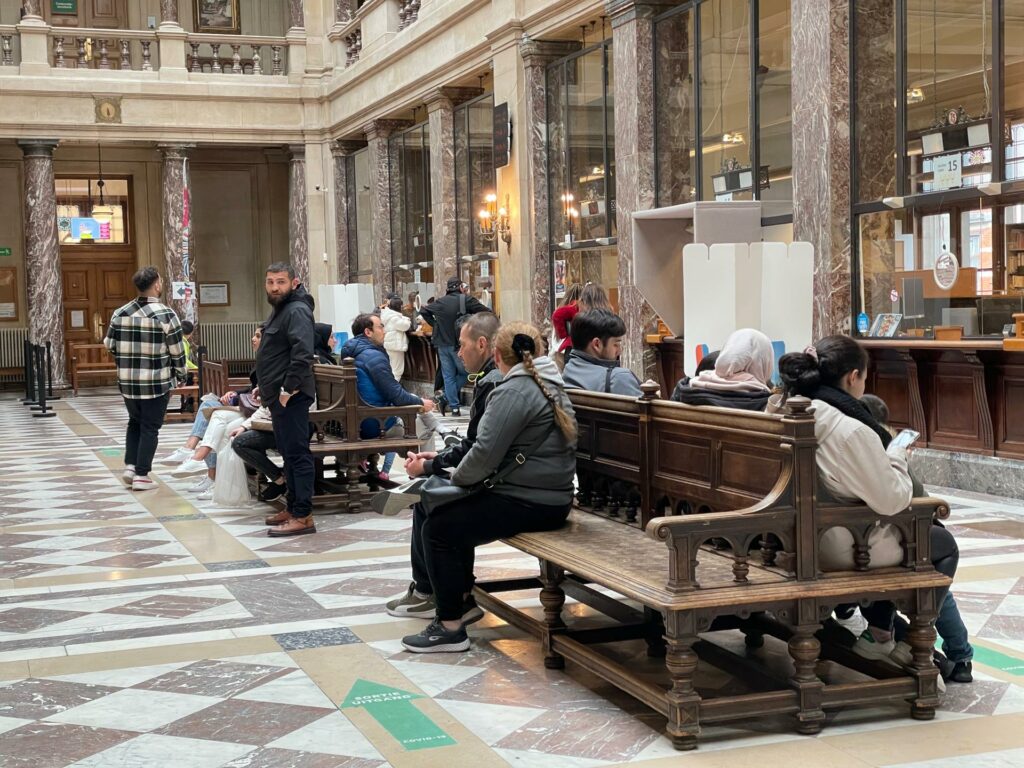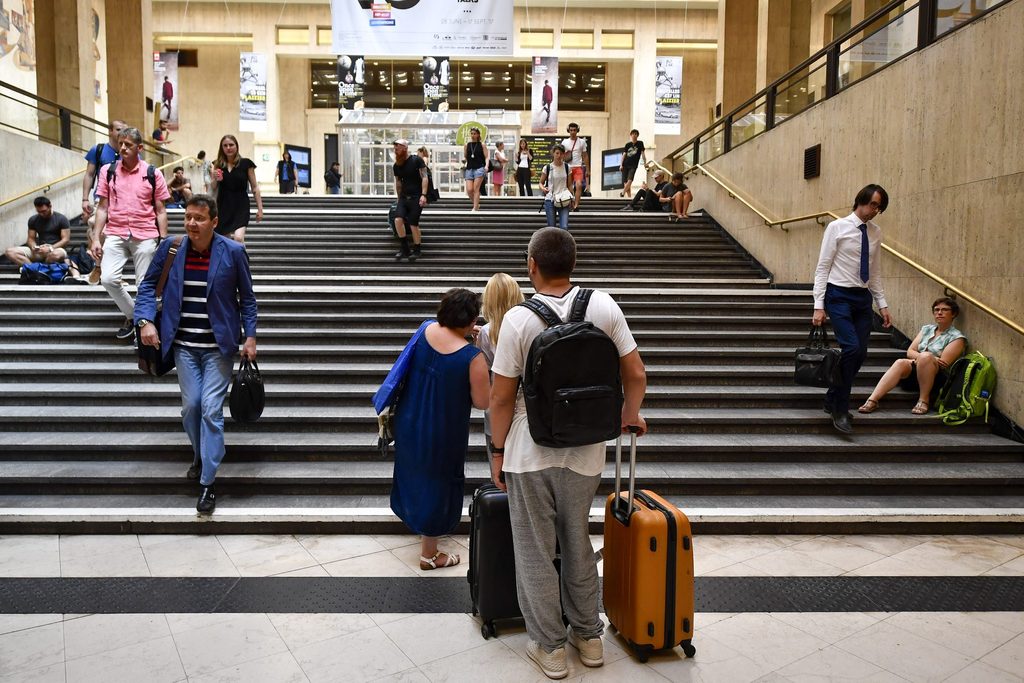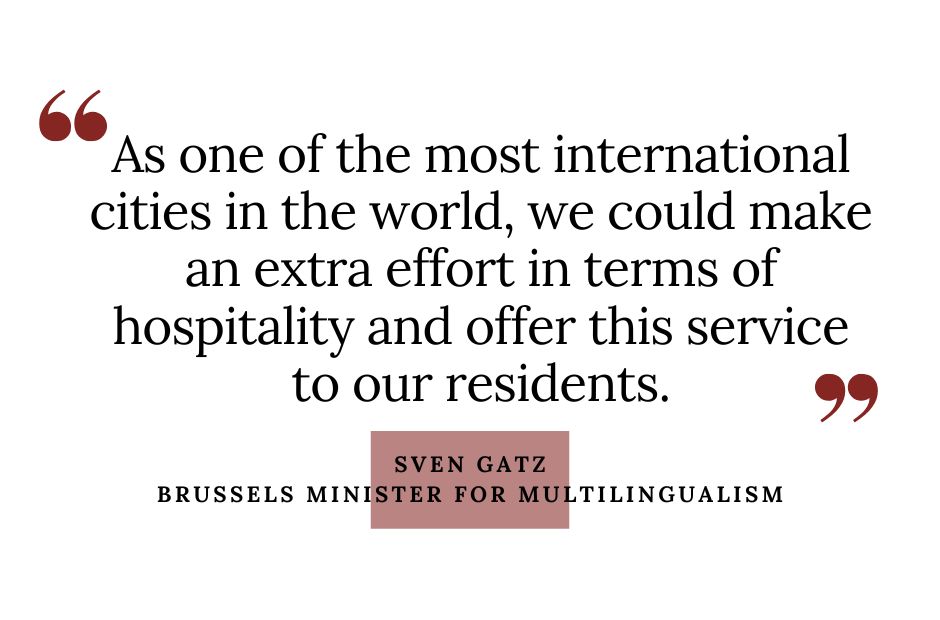English should become an official administrative language in Brussels, in addition to French and Dutch, said Brussels Minister for Multilingualism, Sven Gatz – advocating a big promotion for the Capital Region's non-official third language.
As a majority of those living in Brussels – home to several international institutions – have a non-Belgian background, English is increasingly positioning itself as the new lingua franca in the European capital. Local authorities are not officially allowed to use it when communicating with their residents, however.
"There are two realities in Brussels today," Gatz told The Brussels Times. "On the one hand, some municipalities turn a blind eye to the use of English in the communes even though it is technically not allowed. On the other hand, there are communes like Schaerbeek, which have explicitly announced that they will use it verbally."
As early as April 2022, Schaerbeek announced that it would start offering its services in English to residents who do not speak French or Dutch, and officially include the verbal service in its municipal policy.
Rue de la Loi, Wetstraat, Law Street?
In practice, the proposal would change little in Brussels, as English is already widely used in the European capital. What Gatz wants, however, is to find a way to legally regularise what is already happening in many communes.
Belgium's current language law would have to be amended to do this, however. The current law – which regulates language use in administrative matters for all public authorities internally and externally – dates back to 1966 and specifically states that all Brussels administrations should communicate in the Capital Region's official languages: Dutch and French.
"In concrete terms, every commune (and every administration, including the regional ones) should have at least one person who would be able to answer questions in English if needed," Gatz explained. "That way, people can get the basic information in English, but if they need more detailed information and want to submit a building permit, for example, they would still have to choose between Dutch or French."

The commune's hall. Credit: Schaerbeek
In this sense, English would effectively become a bridge language in many places. Brussels public transport company STIB has already been using English in addition to Dutch and French for the last ten years to reach as many passengers as possible with their most important updates.
The aim is to facilitate understanding, not to complicate an already bilingual country even more. "Rest assured: the street signs will not be changed to add 'Law Street' next to 'Rue de la Loi' and 'Wetstraat'. No one wants that."
Gatz also compared Brussels to New York. "Even though NYC does not have a language law like us, residents can be assisted in nine languages, including Mandarin, Russian and Spanish. More detailed information and paperwork are still in English."
Gatz acknowledged that while communes would have to provide courses for some employees to ensure a good level of English, he does not want to make it too regulated with language rules, premiums or benefits.
"We just do not have good experiences with that in this country. The more formally we agree on something, the less well it works," he said. "I would rather this were a service to the citizens, not a political complication."
Immediately after Gatz launched his proposal, however, he received criticism from several other Brussels politicians. They argued that, while English can certainly be used to help people when they arrive, their aim should be to learn French or Dutch if intending to stay.
Related News
- Embrace 'bad English' as the European 'lingua franca,' says Timmermans
- 'Can't ignore English': Belgium needs to re-think languages, says Sven Gatz
- Etterbeek gives English a seat at the table on local life
"People who stay here for longer will make the effort one way or another – either forcibly through the integration programme or voluntarily because they realise they are staying longer than initially planned," Gatz said. "But as one of the most international cities in the world, we could make an extra effort in terms of hospitality and offer this service to our residents."
While the demand for more English in official communication is growing among both politicians and citizens, the change can only be made by the Federal Chamber of Representatives or the Federal Chamber of the Government. In other words, there is still a long way to go before the proposal would actually be implemented, Gatz explained.
"It is not easy to put in place a framework for this, we have to be realistic about that. But we can go step by step," he said. "Maybe we should all look at Schaerbeek and try to follow the municipality that is already leading the way."


